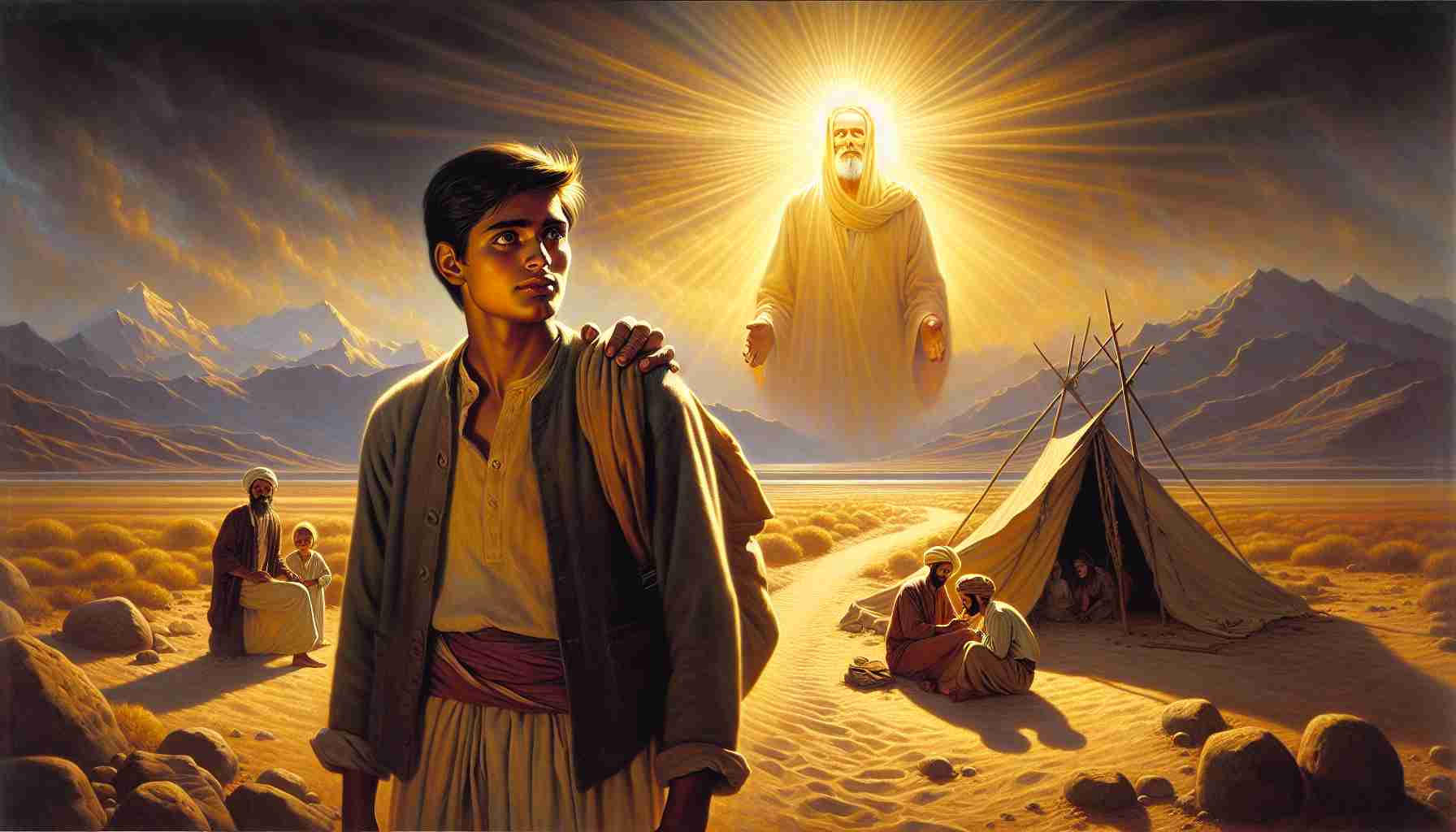

“No,” said Habaiah, his voice low but firm. “We will not drink it.”
The priest paused, the cup still in his outstretched hand. Around them, the chamber inside the temple fell silent. Brothers and cousins looked to one another—not in uncertainty, but in agreement. Habaiah stood among them like a tree in dry ground, roots tangled deep in a promise made before his birth.
The prophet had invited them, said the word of the LORD had come to him. And now, wine lay before them in sacred vessels, a test in holy place.
Habaiah’s hands twitched at his sides—not with desire, but memory. His father’s cracked voice stirring in the dark beyond their tents: “Jonadab son of Rechab commanded us, ‘Drink no wine, you or your sons forever.’” The fire then had been low, the children sleepy. Yet those words fastened themselves to Habaiah’s bones, tight as sinew on frame.
The priest set down the cup, his eyes unreadable. Habaiah breathed again.
Later, outside the temple walls, the air tasted of dust and smoke. The city of Jerusalem buzzed with tension—horses from Babylon encamped close, rumors thick in the streets. His cousin Helez spat into the dirt. “Let them test us. We held to it.”
The others murmured agreement, but Habaiah felt no victory. Only the ache of waiting. Waiting in a land where people broke vows like potsherds—cracked, discarded, swept aside. Even God’s own people, who had the Law, had turned from it.
That night, stretched beneath the woven blankets of their traveler’s tent, Habaiah could not sleep. The stars watched, silent and cold. He remembered his wife’s face—months behind him now, with the younger children. He imagined her hands still on the loom, her voice humming the old songs.
He turned toward the tent wall and whispered the name of God. Not pleading. Just remembering.
In the morning, they returned to the prophet. He waited for them at the gate of the temple, his eyes sharp as river stones.
“Because you obeyed,” Jeremiah said, “because you kept the command of Jonadab, your father’s word—thus says the LORD of hosts: Jonadab son of Rechab shall never lack a man to stand before Me all his days.”
Habaiah said nothing. No one did. The wind rustled the fringe of the prophet’s robe as the words hung in the air—solid, real, as though etched into the stone walls behind them.
A crack opened in Habaiah's chest, a nameless warmth threading through his ribs. It was not pride. It was not relief.
It was something quieter.
He stood for a long time even after the others had gone, his sandals rooted to the sun-baked path.
When he finally turned to leave, he did not look back.
“No,” said Habaiah, his voice low but firm. “We will not drink it.”
The priest paused, the cup still in his outstretched hand. Around them, the chamber inside the temple fell silent. Brothers and cousins looked to one another—not in uncertainty, but in agreement. Habaiah stood among them like a tree in dry ground, roots tangled deep in a promise made before his birth.
The prophet had invited them, said the word of the LORD had come to him. And now, wine lay before them in sacred vessels, a test in holy place.
Habaiah’s hands twitched at his sides—not with desire, but memory. His father’s cracked voice stirring in the dark beyond their tents: “Jonadab son of Rechab commanded us, ‘Drink no wine, you or your sons forever.’” The fire then had been low, the children sleepy. Yet those words fastened themselves to Habaiah’s bones, tight as sinew on frame.
The priest set down the cup, his eyes unreadable. Habaiah breathed again.
Later, outside the temple walls, the air tasted of dust and smoke. The city of Jerusalem buzzed with tension—horses from Babylon encamped close, rumors thick in the streets. His cousin Helez spat into the dirt. “Let them test us. We held to it.”
The others murmured agreement, but Habaiah felt no victory. Only the ache of waiting. Waiting in a land where people broke vows like potsherds—cracked, discarded, swept aside. Even God’s own people, who had the Law, had turned from it.
That night, stretched beneath the woven blankets of their traveler’s tent, Habaiah could not sleep. The stars watched, silent and cold. He remembered his wife’s face—months behind him now, with the younger children. He imagined her hands still on the loom, her voice humming the old songs.
He turned toward the tent wall and whispered the name of God. Not pleading. Just remembering.
In the morning, they returned to the prophet. He waited for them at the gate of the temple, his eyes sharp as river stones.
“Because you obeyed,” Jeremiah said, “because you kept the command of Jonadab, your father’s word—thus says the LORD of hosts: Jonadab son of Rechab shall never lack a man to stand before Me all his days.”
Habaiah said nothing. No one did. The wind rustled the fringe of the prophet’s robe as the words hung in the air—solid, real, as though etched into the stone walls behind them.
A crack opened in Habaiah's chest, a nameless warmth threading through his ribs. It was not pride. It was not relief.
It was something quieter.
He stood for a long time even after the others had gone, his sandals rooted to the sun-baked path.
When he finally turned to leave, he did not look back.